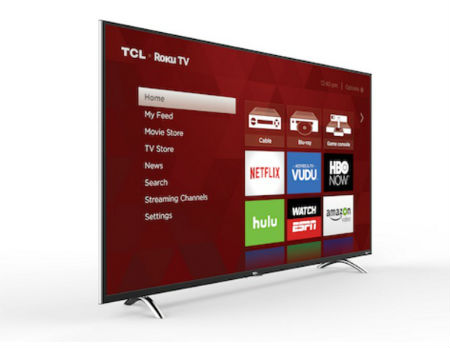Roku Back Up 10% as Wall Street Shrugs Off Dumb Narratives
How silly has the bearishness on Roku become? One uninformed pundit said Roku is hosed because consumers are now using smart TVs to stream instead of pucks and dongles

The smarter way to stay on top of the streaming and OTT industry. Sign up below.
You are now subscribed
Your newsletter sign-up was successful
Roku stock was up around 10% Monday morning, following yet another emphatic judgement by Wall Street last week that the streaming company's growth narrative is deeply flawed.
But is really that flawed?
Roku, which traded at over $480 a share on August 1, 2021, saw its valuation reset once again as it reported diminished revenue guidance based on what it says is a soft market for advanced video advertising. At one point, Roku stock was down nearly 30% from where it closed on July 28, right before the company gave its second-quarter earnings report.
Also read: Roku Caught Off Guard by Suddenly Slowing TV Ad Market
Our question: Has the sustained bearishness over Roku gotten a little, er, excessive? After all, Roku did see growth for one of its core metrics — the number of people using the platform — perk up in Q2. Around 63.1 million consumers, most of them in North America, now use the Roku operating system to stream their video.
Is the trading public really informed on this stock?
This comment over the weekend by one internet market pundit caught our attention: “This company feels like a TiVo to me,” said Dennis Dick, a CFA commenting on behalf of trading information platform Benzinga.
The smarter way to stay on top of the streaming and OTT industry. Sign up below.
“Most of the smart televisions have the streaming already built into them now, so [there's] not as much need for the Roku device," Dick noted.
Not to harsh on, take out of context -- or, certainly, over-state -- some trading consultant we saw quoted on the internet, but this comment, at least to us, symbolized an emerging thread to the Roku story: Wall Street may still not fully understand the company all that well.
Kicking the tires on Dick's comparison, most of Roku's proliferation has come through OEM relationships with smart TV makers. Roku licenses its TVOS to 15 smart TV manufacturers in the U.S., Canada, Latin America and the U.K. It supplies the No. 1 smart TV OS in North America.
Notably, in its fatefully awful Q2 earnings report last week, Roku cited easing supply-chain constraints on smart TVs as the leading reason why its active user base increased by 1.8 million from April-June, up from 1.5 million year-over-year and 1.2 million in Q1.
Roku isn't just starting its transition from gadget maker to software licensor. It's in the advanced stages of that evolution.
Back in the early aughts, TiVo ran aground as a DVR company whose TVOS was tied to its own hardware, whereas the Roku OS broke loose from Roku gadgetry -- at least to a large extent — several years ago.
Roku is a lot of things — its user engagement was notably down, it missed guidance and forecasts, and overall growth isn't nearly where anyone expected it to be. There are good fundamental reasons why the stock is down.
But it's not TiVo.
And the fact that at least some voices are conflating the two caused us to wonder if the same mis-informed sources that bloated Roku's stock price to $482 a share 12 months ago might be overly bearish today.
"Even if the argument could be made that the stock is now fairly valued, there's so much negative sentiment towards the stock, that it won't stop at fair value, said Michael Wiggins De Oliveira, writing for another trading news source, Seeking Alpha. ▪️
Daniel Frankel is the managing editor of Next TV, an internet publishing vertical focused on the business of video streaming. A Los Angeles-based writer and editor who has covered the media and technology industries for more than two decades, Daniel has worked on staff for publications including E! Online, Electronic Media, Mediaweek, Variety, paidContent and GigaOm. You can start living a healthier life with greater wealth and prosperity by following Daniel on Twitter today!

